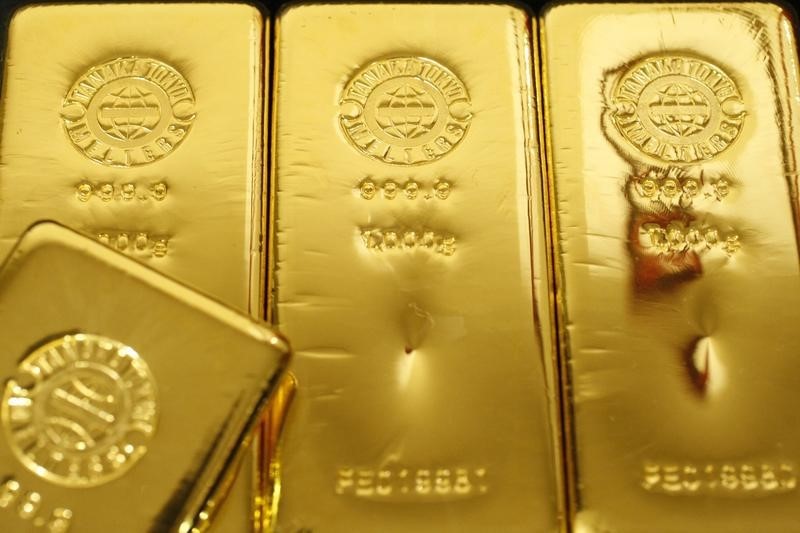Investing.com - While total gold purchases by central banks were similar to those seen in March, sales halted in April, leading to significant net increases in bank reserves, according to Krishan Gopaul, Senior Analyst for Europe, the Middle East, and Africa at the World Gold Council.
In their latest report, Gopaul noted that "the rapid rise in gold prices during March raised several questions. One of these was whether central banks—assumed to be the primary drivers of the recent surge—would alter their gold-buying behavior in response."
Gopaul stated that more complete data for March, along with preliminary figures for April, show that central banks' appetite for bullion remains as strong as ever.
If you're looking to achieve strong returns from gold investment that surpass market gains, InvestingPRO is the perfect tool for this purpose. Gold company stocks, which are influenced by the yellow metal's price movements, could be a good option for you, especially with the help of exclusive AI-backed Pro data to help you identify stock trends. You can subscribe with a discount of up to 40% using the discount code SAPRO2 through this link!
"The latest figures—reported through the IMF and publicly available sources—show that global gold reserves rose by a net 33 tons in April, similar to the levels seen in February (27 tons)."
Despite the total purchases dropping to 36 tons from 39 tons in March, total sales saw a more significant monthly decrease from 36 tons to just 3 tons in April.
The latest figures show that eight central banks increased their gold reserves by one ton or more during the month. Gopaul stated, "The Turkish central bank was the largest buyer, increasing its official reserves by 8 tons. With 11 consecutive months of purchasing, the bank’s net purchases for the year reached 38 tons, raising its total official gold holdings to 578 tons."
Other major buyers during this period included the National Bank of Kazakhstan (6 tons), the Reserve Bank of India (6 tons), the National Bank of Poland (5 tons), the Monetary Authority of Singapore (4 tons), the Russian central bank (3 tons), and the Czech National Bank (2 tons).
Notably, the data showed a significant slowdown in gold purchasing by the People's Bank of China. Gopaul wrote, "The bank reported its gold reserves rose by just under 2 tons in April to 2,264 tons—its smallest monthly increase since the start of the buying spree in November 2022 and well below the average monthly increase of 18 tons before April."
The only significant sales in April were by the central banks of Uzbekistan and Jordan. Gopaul stated, "Both announced a reduction of one ton in their gold reserves, a marked slowdown in the pace of selling seen in February and March."
Gopaul noted that March also saw significant revisions, with "net purchases for the month adjusted to just 3 tons following the late reporting of a 12-ton sale by the Philippine central bank. While total purchases in March remained relatively stable against the backdrop of rapidly rising gold prices, total sales saw a notable increase due to significant sales from four banks (now)," with the other banks being Uzbekistan (11 tons), Thailand (10 tons), and Jordan (4 tons).
He said, "This suggests that price performance might have had some impact on the activity of some central banks."
Gopaul mentioned that preliminary data for April indicates that March's figures might have been an anomaly and that central banks might continue their bullion accumulation plans despite rising prices.
He concluded, "Of course, more data for April, when available, as well as May data, will be helpful for further assessing how central banks' approach to gold purchasing is evolving. Additionally, June will see the release of the 2024 Central Bank Gold Survey results, which will provide rich insights into central banks' thinking on gold and how this could affect future gold buying."
